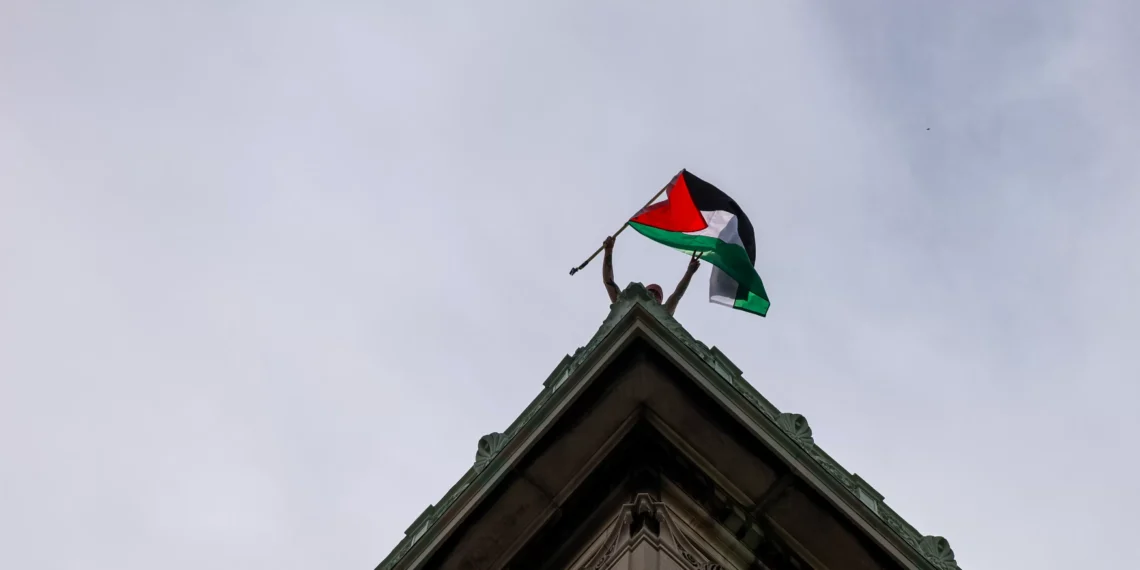“It’s Hard to See Columbia’s Response as Anything Other Than an Attempt to Silence Student Voices”
In recent years, college campuses across the United States have become a breeding ground for activism and social justice movements. Students are using their voices and platforms to speak out against injustice, discrimination, and systemic issues. However, it seems that some universities are not too keen on having their students exercise their right to free speech.
One such university is Columbia University, which has recently come under fire for its new disciplinary rules. These rules, coincidentally implemented just in time to target student protesters, have been widely criticized as a blatant attempt to silence student voices and suppress activism on campus.
The Intercept recently reported that Columbia University has revised its disciplinary rules, giving the university more power to punish students for participating in protests and demonstrations. Under these new rules, students can be disciplined for “disorderly conduct” and “obstruction or disruption of teaching, research, administration, disciplinary proceedings, or other authorized activities.” This vague language leaves room for interpretation and could potentially be used to target students who are exercising their right to peaceful protest.
The timing of these new rules is also highly suspect. They were implemented just a few weeks before a planned protest against the university’s handling of sexual assault cases. This protest, organized by a group of students called “No Red Tape,” was set to take place during Columbia’s annual Days on Campus event, which brings in prospective students and their families. It was a strategic move by the university to prevent any negative publicity during this important event.
The fact that these rules were specifically revised to target student protesters is deeply concerning. It sends a message that the university is more concerned with maintaining its image than allowing its students to speak out against important issues. It also raises questions about the university’s commitment to free speech and academic freedom.
Columbia’s response to these criticisms has been lackluster at best. In a statement, the university claimed that the new rules were not intended to target student protesters and that they were simply updating their policies to align with federal guidelines. However, this explanation falls short when considering the timing and language of the new rules.
It’s hard to see this wildly disproportionate response as anything other than an attempt to chill speech on this issue. By giving the university more power to discipline students for participating in protests, Columbia is essentially trying to silence dissent and discourage students from speaking out against important issues.
This is not the first time that Columbia University has faced backlash for its handling of student activism. In 2015, the university faced widespread criticism for its response to student protests against racism and discrimination on campus. Instead of addressing the root causes of these issues, the university chose to punish the students who were speaking out against them.
As a prestigious university that prides itself on academic freedom and critical thinking, Columbia’s actions are disappointing and alarming. Universities should be a place where students are encouraged to engage in open and respectful dialogue, even if it means challenging the status quo. By stifling student voices and targeting protesters, Columbia is sending a dangerous message that dissent will not be tolerated.
It’s important to remember that student activism has a long history of bringing about positive change. From the civil rights movement to the fight against apartheid, students have played a crucial role in pushing for social justice and equality. By silencing student voices, universities like Columbia are hindering progress and perpetuating the very issues that students are trying to address.
In a time where activism and social justice movements are more important than ever, it’s crucial for universities to support their students and allow them to exercise their right to free speech. Columbia’s response to student protests is a step in the wrong direction and sets a dangerous precedent for other universities to follow.
As students, we must continue to use our voices and platforms to speak out against injustice and hold our universities accountable. We cannot allow our right to free speech to be suppressed and our voices to be silenced. It’s time for universities like Columbia to listen to their students and support them in their fight for a better world.






